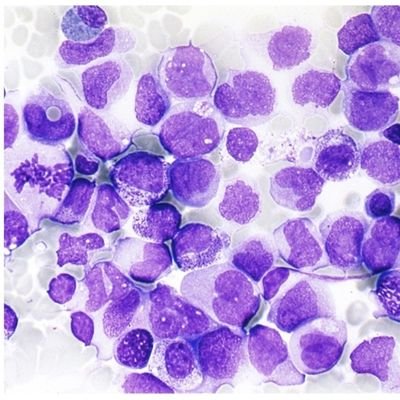We sought to make proteins both potent and FAST. We used #proteindesign to design precise control over protein interaction lifetimes, enabling us to construct rapid-response circuits, biosensors, and switchable cytokines. Now published @Nature! Links to paper and tutorial below.
11
98
459
Replies
High affinity protein binders often have potent biological effects on their targets. But their long interaction half-lives limit their response rates to direct competition, so it has been difficult to design high-affinity systems that can also be rapidly switched off.
1
1
11
We designed a switch protein that is strongly driven to change conformation upon binding an effector, and can attach this protein to almost any binder such that, when the effector is added, the resulting conformational change forces the complex into a high-energy strained state.
2
0
7
Adding the effector to induce this strained state causes dissociation of the binder from its target to dramatically accelerate!
1
0
6
To rapidly access this strained state, we found that using a flexible effector that folds upon binding likely stabilizes intermediate steps of the transition so that overall, binding the effector strongly drives the conformational change even against loads.
1
0
6
We solved crystal structures of one design in all dominant states, confirming accurate design of these dynamic proteins. The structure of the strained state shows how the entire complex strains to resolve the designed steric clash! View it here: https://t.co/UjcgcViXIO
1
0
5
Facilitated dissociation has myriad applications. We showed how this behavior can enable rapid release of kinetic traps to initiate chain reactions, rapid control of split enzymes, and rapid yet high dynamic range biosensing.
1
0
5
Interleukin-2 (IL-2) has been explored for decades in cancer immunotherapy. It potently activates the immune system to attack tumors, but inadvertently also healthy cells, causing toxicity. Since IL-2 binds its receptors tightly, it is difficult to quickly shut off its activity.
1
0
6
We designed switchable IL-2-like cytokines that can be rapidly dissociated from their receptors to terminate signaling. By stimulating with cytokine and later adding effector, the duration of signaling can be controlled, providing another lever of therapeutic control beyond dose.
1
0
6
With some beautiful microscopy, Christoph @PiehlerLab showed that adding the effector completely deactivated signaling complexes on the cell surface within 10 seconds, immediately stopping STAT5 signaling.
1
0
4
@YangZhao102 at Garcia Lab showed that transient IL-2 stimulation decouples fast downstream responses (like cell survival) from slow ones (like cell proliferation), and using RNA-seq showed that this applies to a broad range of cell functions.
1
1
7
More generally, the residence time of ligands on their receptors is thought to modulate the downstream cell response, but this is difficult to study. This work shows how facilitated dissociation can be applied to explore this outstanding biological question.
1
0
4
Designing the kinetics of protein change is challenging because it requires the design of both ground and excited intermediate states. This work shows that switching moderately sized steric clashes is a straightforward way to introduce strain to design excited intermediates.
1
0
4
And finally, this work shows how introducing flexibility into designed protein systems can reduce energy barriers, altering mechanisms and enhancing kinetics of state change.
1
0
5
We are excited for the potential applications of this work. If you have ideas that could benefit from designed facilitated dissociation and would like to discuss or collaborate, please reach out!
1
0
4
Stay tuned for applications of facilitated dissociation in targeted drug delivery and for a deeper exploration of how flexibility and folding-upon-binding can effectively generate force within proteins.
1
0
4
See this thread for a more technical summary of our findings.
Excited to announce our new #proteindesign strategy for allosterically controlling the kinetics of protein-protein interactions! Read on for cool applications in cytokine signaling, biosensing, and protein circuits. https://t.co/jBIHq10Ykd
1
0
5
Collaborating with @FloPraetorius, @malichtenstein, Christoph @PiehlerLab, @YangZhao102 and @MasatoOgishi at Garcia Lab, Maxx and Mark with @StollPatrol, Harry @DMZuckermanLab, the IPD cores, and all of @UWproteindesign took this project to the next level—thanks to all of you!
0
0
5
@adam_broerman @Nature impressed already last year. Big congrats for the final publication! This could definitely inspire a new class of drug modality and more interesting things in circuit designing
0
0
1
@adam_broerman @Nature Well you better hurry the fuck up and deal with the 20+ proteins SARS Cov2 encodes
0
0
0
@adam_broerman @Nature Adam this sounds awesome tell me more. Do you have a lab I can come visit?
0
0
0






